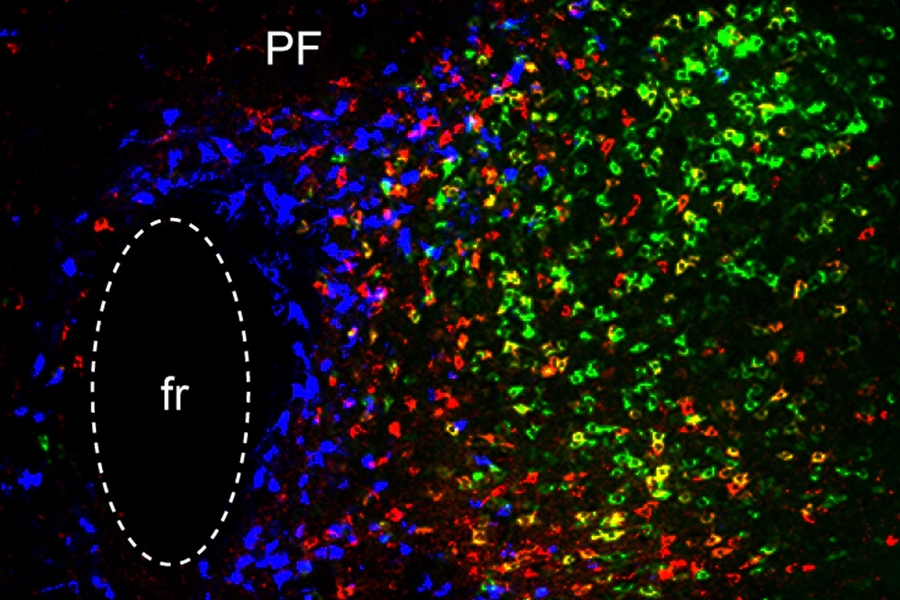
Credits:Image: Ying Zhang and Dheeraj Roy
Targeting these circuits could offer a new way to reverse motor dysfunction and depression in Parkinson’s patients. In a study of a small region of the thalamus, MIT neuroscientists have now identified three distinct circuits that influence the development of both motor and nonmotor symptoms of Parkinson’s. Furthermore, they found that by manipulating these circuits, they could reverse Parkinson’s symptoms in mice.
The findings suggest that those circuits could be good targets for new d...
Read More









Recent Comments